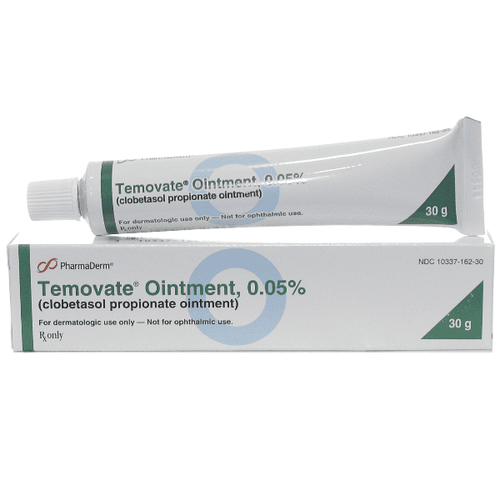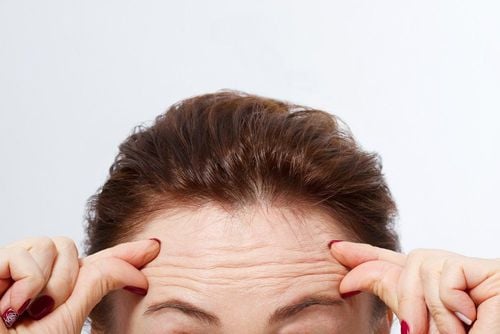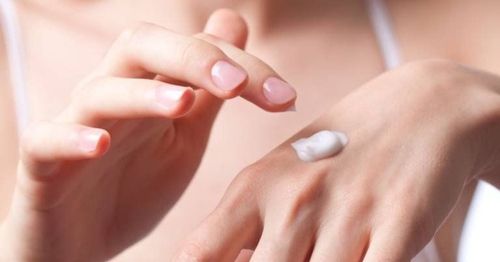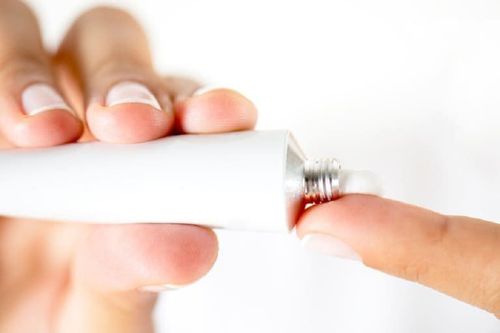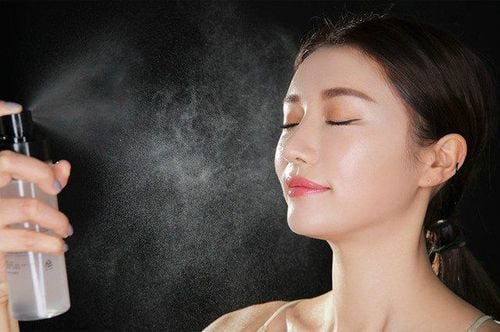This is an automatically translated article.
Under each pore is a sebaceous gland that produces natural oils (sebum) that will help keep skin hydrated and healthy. However, due to a number of factors such as genetics, environment and lifestyle can be the trigger factors for oily, shiny, acne-prone skin due to trapped dead cells and sebum. in pores.1. What is oily skin like?
Oily skin is skin that is characterized by a thick, shiny appearance with visible pores. The skin becomes too oily because the sebaceous glands produce an increased amount of oil on the surface of the skin. This makes the skin prone to blackheads, acne or other skin imperfections.
Oily skin occurs more in men than in women and can significantly affect young people especially adolescents. Since the oil glands are more active in the T-zone, the nose, forehead, cheeks, chin, neck, and even breasts also tend to be affected.
During puberty, there is an increase in androgen levels - male hormones found in both sexes - and the body begins to produce more oil. Oil will be moved from the glands to the skin by draining into nearby pores. In some people, the sebaceous glands are overactive resulting in the surface of the skin being greasier than normal. The oily appearance usually goes away on its own after puberty, but it can also persist into adulthood.
However, oily skin can delay the effects of skin aging. Because oil has the ability to absorb some of the sun's ultraviolet rays, sebum also has a moisturizing effect on the skin. This way the oil can protect the skin from sun damage and always keep the skin hydrated, not dry.
Oil production by the sebaceous glands is part of the normal functioning of healthy skin. It makes the skin smoother and less wrinkled. But if this production occurs in excess compared to normal, this is the factor that causes oily skin and harmful effects on the skin such as acne, boils, swelling, pain...
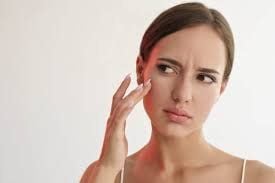
Da dầu là da được đặc trưng bởi vẻ ngoài dày, sáng bóng với lỗ chân lông to.
2. Causes of oily skin
Causes of oily skin will include genetic factors, environmental factors and lifestyle. In order to improve oily skin, it is important to identify the cause of the skin condition. Here are some of the underlying causes of oily skin:
2.1. Genetics Oily skin tends to run in families. If either parent or both parents have oily skin, their child is likely to have overactive sebaceous glands that cause oily skin.
2.2. Age Your skin will actually produce less sebum as you age. At the same time, the aging process of the skin will cause the loss of proteins such as collagen and then the sebaceous glands will slow down. This is precisely why many people with aging skin also have dry skin. When there is a lack of collagen and sebum, this is when wrinkles and crow's feet will be more noticeable.
One benefit of oily skin is that as you age, the signs of aging tend to slow down compared to dry skin. Your skin may be oily at the moment, but you need to re-examine your skin as you age. Because, people in their 30s often don't have the same skin composition as they do in their teens and 20s. To check and evaluate the skin, it is necessary to consult a dermatologist or esthetician. To be able to identify the right skin type and choose the right skin care method.
2.3. Environment While genetics and age are the primary causes of oily skin, environment can also be one of them. In hot and humid climates, people tend to have more oily skin. Or it may happen more in the summer than in the winter and fall. To overcome this situation, you can adjust your daily routine in days with high temperature and humidity. Or you can use blotting paper to absorb excess oil throughout the day. Or you can use a moisturizer or foundation to help increase oil absorption.
2.4. Large pores Large pores can be caused by the effects of age, or a change in weight that has disrupted the previous skin structure and changed the skin. And this is the reason why the skin has more oil. To limit this situation, you can apply some ways to help shrink pores.
2.5. Using the wrong skin care products Using the wrong skin care products can make your skin produce more oil. Some people mistake combination skin for oily skin and they often use creams that are too heavy. This will cause damage to the skin. For example, if you have dry skin, during the winter months you should change up your skin care plan with mild moisturizers and gel cleansers. Using the right skin care products can make a big difference in how much oil stays on your face.

Sử dụng sai sản phẩm chăm sóc da có thể dẫn đến da dầu.
2.7. Skip the moisturizer Some people think that moisturizer will make the skin more oily. But in reality, when using acne treatments like salicylic acid or benzoyl peroxide, you definitely need a good moisturizer that can keep your skin hydrated and prevent it from drying out.
Choose mild, oil-free but water-based moisturizers to care for and moisturize the skin while helping to open pores.
3. Some methods to improve oily skin
Cleanse the skin. Using a cleanser that's gentle and contains effective acne-fighting ingredients can help cut down on oil production. For oily skin it is most important to wash your face in the morning and at night. Also, do not wash more than twice a day. Use products that are safe to exfoliate and treat acne skin. Keep skin moisturized throughout the day. Get enough sleep and clean bedding regularly. Proper rest every night is important for overall health and especially for the appearance of your skin. Increased insulin can lead to the creation of IGF-1 - a hormone that stimulates increased sebum production. Healthy diet. Eating healthy not only improves your overall health, but it's also great for your skin. Because, using some foods rich in sugar, rich in fat ... will contribute to making the skin become oily and more acne. Avoid stress. Should control the state of the body to avoid stress. Because when stress occurs, it will connect with insulin resistance and make acne worse. According to recent research, there is a link between stress and acne that interact. Furthermore, severe acne is also associated with an increased risk of anxiety and depression. Always use sunscreen. In a nutshell, oily skin is skin that is characterized by a thick, shiny appearance with visible pores. The skin becomes too oily because the sebaceous glands produce an increased amount of oil on the surface of the skin. This makes the skin more prone to blackheads, acne or other skin imperfections.
Please dial HOTLINE for more information or register for an appointment HERE. Download MyVinmec app to make appointments faster and to manage your bookings easily.
Article reference source: healthline.com, bioclarity.com




